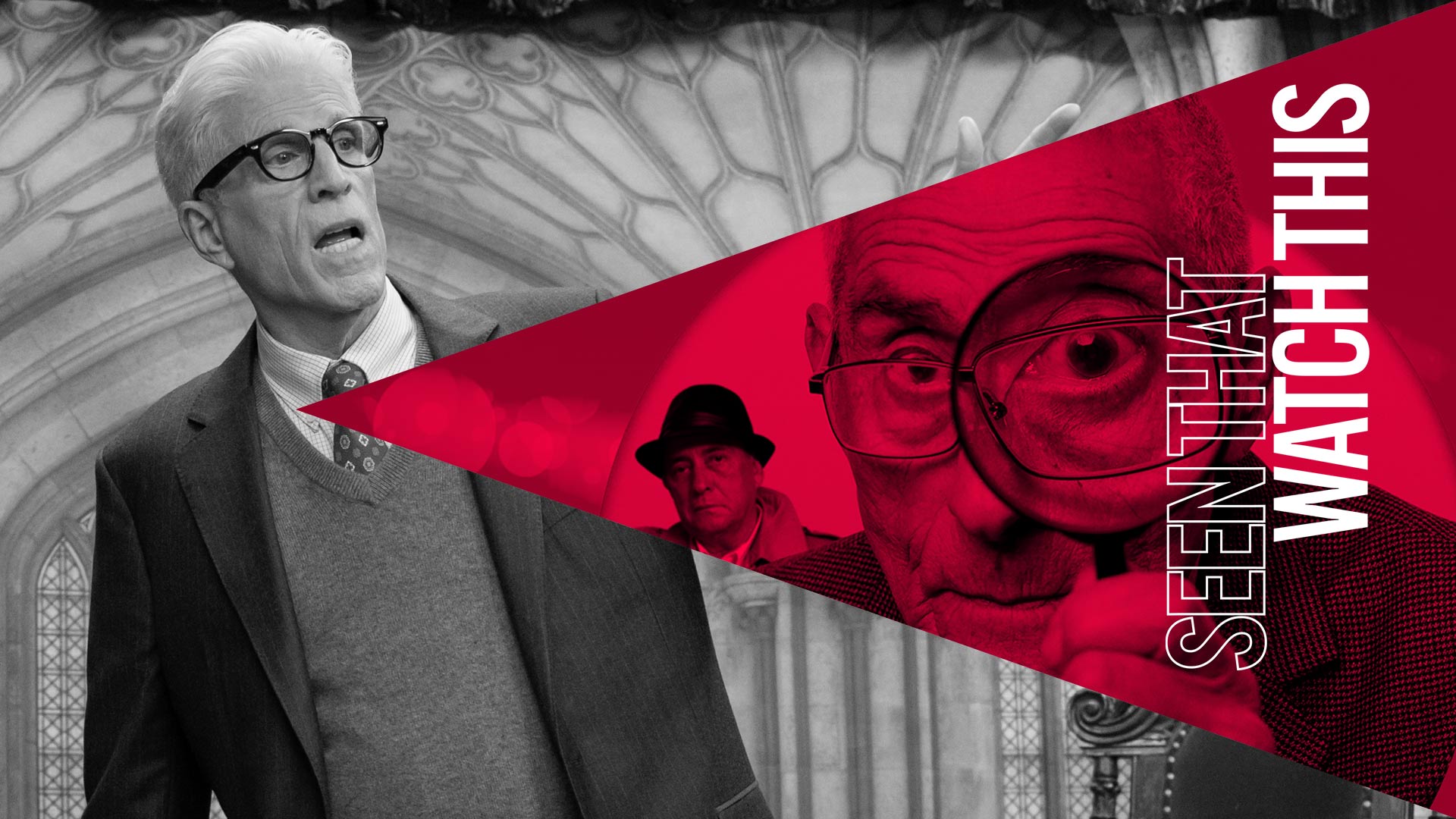What’s better: A Man on the Inside, or the film it’s based on?

Maybe you’re watching and enjoying Netflix’s A Man on the Inside, but have you seen the film it’s based on? Luke Buckmaster compares Ted Danson’s very enjoyable new series with the Chileon documentary it remakes.
Netflix’s hit new comedy series arrived with a built-in loyal fan base: hardcore appreciators of observational documentaries from Chile. Kidding, kidding. I’d be amazed if one in a hundred people who’ve watched A Man on the Inside have seen the production it remakes: the slight, curiously conceived 2020 Chilean doco The Mole Agent, about an 83-year-old pensioner who goes “undercover” in a nursing home to investigate potential mistreatment of its residents. His name is Sergio Chamy, and, like Charles—the retired professor Ted Danson plays in the series—he has a gentle, unassuming demeanour: the aura of a person who lets life happen to him, but is softly tactful and not to be underestimated.
The TV series (created by Michael Shur, who also created The Good Place) lightens the context, putting Charles into the home to investigate a potential jewel theft. But like in The Mole Agent, which never unearthed any evidence of mistreatment, the plot isn’t the main attraction in A Man on the Inside. It gives it a narrative backbone and nudges the experience towards actual outcomes, but you never feel deeply invested in the investigation, because its core appeal lies elsewhere.
In The Mole Agent, that appeal is largely the film’s amiable swagger, which eases the viewer into fertile comedic scenarios, never making too much of them or soliciting any great laughs or highs. It’s not badly made, and sometimes it’s quietly moving, melancholia never far from the surface. But it’s neither a rib-tickler nor a profound insight into human experience.
What the film does have is a great premise, which lends itself beautifully to fiction, as A Man on the Inside demonstrates. There are, for me, three elements of this very enjoyable show (I’m half way through at the time of writing) that make it so appealing: an even more endearing energy than The Mole Agent; Danson’s utterly charming performance; and its lowkey but deceptively clever approach to comedy.
The first episode frontloads glimpses of Charles’ daily life, using modest visual storytelling—i.e. shots of him lying in bed alone, and doing crosswords by himself—to communicate that he’s alone and unadventurous, potentially in the market for Life 2.0. After answering the aforementioned ad, he’s hired by Lilah Richcreek’s private investigator Julie on the grounds that he’s not a complete idiot, not entirely a Mr Magoo, and more technologically savvy than the other candidates, including a man who attempts to send a message on his phone but gets stuck on the calculator, and can’t stop adding things up. Charles however is out of touch enough to provide an easy passage for comedy. When he gets given spy glasses, for instance, you know he’s going to struggle with them, guaranteeing easy gags, such as him leaning in too closely to a man he’s surreptitiously filming.
Going forward, part of the humour predictably involes the age of the nursing home’s residents, who Charles is quick to make friends (and in one case enemies) with. One old-timer complains that “everything tastes like pennies, and none of us can feel our arms”—an example of how the writers, generally speaking, get us laughing with them rather than at them. This requires a balancing act, resisting cheap shots and treating the characters as actual people, not elapsed expiry dates. The sweet spot: jokes that involve age, but are also funny for other reasons, and give the performances room to find a good jive. Take for example the following exchange, in episode two, between a tipsy Charles and his new friend, Sally Struthers’ Virginia Foldau.
Charles: Last time I was this was this drunk was at a Jackson Browne concert in 1975.
Virginia: When’s the last time you smoked grass?
Charles: At a Jackson Browne concert in 1975.
It’s modest, unflashy writing, but it works, and it’s funny. Compile enough gags like that, delivered by somebody as appealing as Danson, and you’ve got yourself a cracker comedy. You certainly don’t get these sorts of sharpened interactions in The Mole Agent, for obvious reasons, the ob-doc format limiting the appeal of the core premise.
Another embellishment, hinted at in the source material and expanded in the show, is the addition of intergenerational jokes, through Charles’ regular interactions with the much younger and frequently exasperated Julie (Selena Gomez’s character in Only Murders in the Building might’ve been an inspiration, given how reliably she’s used to extract good-natured laughs related to age differences between her and the other leads—played by Steve Martin and Martin Short). It all hangs together as appealingly light and moreish entertainment, smartly made and easy to watch.
























